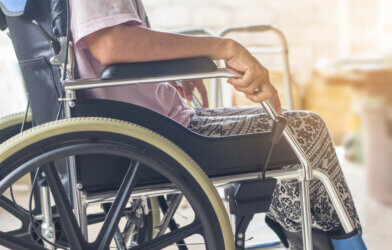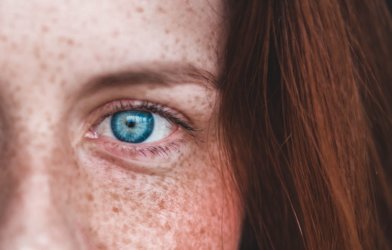Companies who truly are invested in their employees’ well-being may want to invest in virtual reality technology for the office. Healthcare workers’ stress levels were remarkably reduced after immersing themselves in a tranquil VR setting for just three minutes, according to new research.
Researchers at Ohio University wanted to see if the brief peaceful scenes could combat pandemic-fueled pressures for frontline staff. The finding is based on 102 employees ages 18 to 64 at three COVID units in the U.S.
Participants viewed a 360-degree virtual reality video capture of a lush, green nature preserve on a headset for just 180 seconds. Stress levels among frazzled individuals fell by up to 4 points on a scale of 1 to 10. The average drop was 2.2, a result described as “significant”.
“Experiences in nature and green environments have been shown to have a positive impact on human health and have even been suggested as a way to address health provider burnout,” the authors write. “Often set within the context of the Japanese practice of shinrin yoku, or forest bathing, numerous studies have explored how nature immersion can enable people of all ages to reduce stress.”
The ancient practice of spending time in a forest is a national pastime in Japan, and is said to boost wellbeing.
Testing virtual reality nature preserve on stressed-out workers
A survey first rated the volunteers’ subjective stress from “Not at all” (1) to “Extremely” (10). Around a third (33) met the ‘high’ mark of 6.8, qualifying them for the test.
“Immediately following the simulation, only 4% met the cut off for high stress,” the authors write. “Overall, we observed a significant reduction in average scores with a large effect size, suggesting the meaningful impact.”
It applied to all participants regardless of job, age, gender or prior experience with virtual reality.
The findings could be especially helpful to medical workers who are battling the brutal mental health effects from the pandemic. COVID-19 has taken an immense physical, social and emotional toll on these frontline healthcare workers. They have risked their lives fighting the pandemic. Increased workloads, shortages in PPE and fears of infecting those close to them have added to their worries.
“Research has documented higher levels of anxiety, depression and burn-out during the pandemic. Thus, creative interventions are needed now more than ever to provide brief, accessible support to frontline workers,” the study reads. “Virtual reality is a rapidly growing technology with potential psychological applications.”
The simple technique is known as Tranquil Cinematic-VR. Two years ago a British team demonstrated that watching similar soothing scenes of the Arctic eased patients’ chronic pain.
“Findings from this pilot study suggest the application of this Tranquil Cinematic-VR simulation was effective in reducing subjective stress among frontline healthcare workers in the short-term,” the paper concludes. “More research is needed to compare theTranquil Cinematic-VR simulation to a control condition and assess subjective and objective measures of stress over time.”
A larger sample of respondents is now underway to examine demographic differences in response to the system.
“Long-term impacts on subjective stress and other psycho-social constructs such as anxiety, depression and burn-out are promising areas for future research,” the authors note.
The study is published in the journal PLOS ONE.
South West News Service writer Mark Waghorn contributed to this report.












